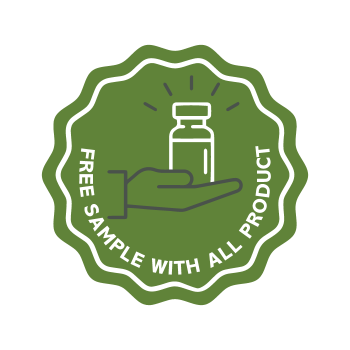Cannabinoid Receptors
Cannabinoid receptors play a crucial role in how the body processes cannabinoids like CBD and THC, influencing functions such as mood, pain, and immunity. These receptors are part of the endocannabinoid system (ECS), a complex cell-signaling system that maintains balance in the body. The two primary cannabinoid receptors, CB1 and CB2, interact with cannabinoids to trigger physiological responses. When cannabinoids bind to these receptors, they can help regulate various functions, making them essential for understanding how cannabinoids affect the body.
What are Cannabinoid Receptors and How Do They Work?
Cannabinoid receptors are proteins within the ECS that respond to cannabinoids, influencing many body functions. CB1 receptors are primarily found in the brain and central nervous system and are linked to mood, appetite, and pain. When THC binds to CB1 receptors, it creates a psychoactive “high.” In contrast, CB2 receptors are located in the immune system and peripheral organs, where they help manage inflammation and immune response. This interaction with cannabinoids, whether natural (like endocannabinoids) or plant-derived (like THC and CBD), helps maintain homeostasis, the body’s internal balance.
The ECS’s impact on health and wellness is why cannabinoids are so widely researched for therapeutic uses. To understand how cannabinoids interact with CB1 and CB2 receptors, this resource on endocannabinoid receptors provides valuable insights. Understanding these receptors can help guide users in choosing the right cannabinoids for their wellness goals.
Types of Cannabinoid Receptors and Their Functions
-
CB1 Receptors: Found mainly in the brain and central nervous system, CB1 receptors regulate functions like mood, memory, and pain perception. THC primarily binds to CB1 receptors, creating the psychoactive effects associated with cannabis.
-
CB2 Receptors: Located mainly in the immune system, CB2 receptors help control inflammation and immune responses. CBD interacts with CB2 receptors indirectly, often providing anti-inflammatory effects without causing a high.
-
Additional Receptors: Research has identified potential cannabinoid-related receptors, such as GPR55 and TRPV1, which may influence functions like bone health and inflammation.
How Cannabinoid Receptors Affect the Body
When cannabinoids interact with CB1 and CB2 receptors, they initiate responses in the body that can influence health and wellness. For instance, THC binding to CB1 receptors in the brain is what causes its psychoactive effects, along with potential pain relief and appetite stimulation. CBD’s interaction with CB2 receptors offers non-psychoactive benefits, such as reducing inflammation and promoting relaxation, making it popular for wellness routines. By influencing the ECS through these receptors, cannabinoids can help the body manage stress, pain, and inflammation, contributing to overall balance.
The varied roles of CB1 and CB2 receptors also explain why certain cannabinoids work better for specific health needs. THC’s direct interaction with CB1 receptors makes it effective for conditions involving pain and nausea, while CBD’s effects on CB2 receptors make it a popular choice for inflammation and anxiety management. If you’re exploring the therapeutic potential of cannabinoids, the ECS’s impact on health is well-documented and can provide a foundation for understanding how cannabinoid products may support wellness goals.
Benefits and Uses of Cannabinoid Receptors
The activation of CB1 and CB2 receptors by cannabinoids has led to their use in various wellness applications:
- Pain Management: THC binds to CB1 receptors in the brain, reducing pain perception and making it popular among users seeking natural pain relief.
- Mood and Anxiety Regulation: CB1 receptors can help reduce anxiety and improve mood, while CBD’s action on CB2 receptors can promote relaxation without psychoactivity.
- Anti-Inflammatory Effects: CB2 receptors in immune cells regulate inflammation, allowing cannabinoids like CBD to offer potential relief from inflammation-related issues.
- Appetite Stimulation: THC’s interaction with CB1 receptors increases appetite, helpful for individuals requiring nutritional support.
- Sleep Aid: Activation of CB1 receptors helps regulate sleep cycles, allowing cannabinoids like THC and CBN to promote restful sleep.
Related Terms
- Endocannabinoid System (ECS): The internal system of receptors and enzymes, including CB1 and CB2, that help maintain body balance and respond to cannabinoids.
- Homeostasis: The body’s state of balance, maintained by systems like the ECS to regulate mood, immunity, and metabolism.
- Entourage Effect: The synergistic effect where multiple cannabinoids work together to enhance therapeutic outcomes.
Frequently Asked Questions about Cannabinoid Receptors
How do CB1 and CB2 receptors differ?
CB1 receptors are primarily in the brain and control mood, appetite, and pain, while CB2 receptors are in immune cells and influence inflammation and immune function.
Do cannabinoids affect receptors other than CB1 and CB2?
Yes, research suggests that other receptors, like GPR55 and TRPV1, may also interact with cannabinoids, expanding their potential effects on the body.
Can activating CB1 and CB2 receptors help with daily wellness?
Yes, activating CB1 and CB2 receptors with cannabinoids can support daily wellness. CBD’s action on CB2 receptors can promote relaxation, while THC’s interaction with CB1 receptors offers additional therapeutic benefits.
Discover Cannabinoid Products at Pharmabinoid
Pharmabinoid provides high-quality cannabinoid products designed to interact effectively with CB1 and CB2 receptors for comprehensive wellness support. Whether you seek the relaxing effects of CBD or the balanced benefits of full-spectrum products, explore Pharmabinoid’s range of cannabinoid options to enhance your wellness routine.
TryPharma
Norėdami gauti daugiau informacijos, skambinkite arba atsiųskite mums el

Nemokamas pavyzdys
Atraskite mūsų produktų pranašumus iš pirmų lūpų apsilankę mūsų svetainėje, kad gautumėte išskirtinį produktą TryPharma kodas. Pateikdami užsakymą naudodami šį specialų kodą, ne tik užsitikrinsite norimas prekes, bet ir su kiekvienu pirkiniu pridėsime nemokamą pavyzdį. Ši galimybė suteikia galimybę pajusti mūsų pasiūlymų kokybę prieš įsipareigodami vykdyti pagrindinę siuntą. Mūsų tikslas yra užtikrinti, kad esate visiškai patenkinti savo pasirinkimu, o šis procesas suteikia galimybę nerizikingai ištirti mūsų platų produktų asortimentą. Susisiekite su mumis šiandien, kad pradėtumėte ir žengtumėte pirmąjį žingsnį naudingos patirties su mūsų aukščiausios kokybės pasiūlymais link.

Siuntimo draudimas
Kai iš mūsų perkate CBD izoliatus, aliejus ir kitus produktus, jūsų siuntą visiškai apdraudžiame be jokių papildomų išlaidų. Pervežimui naudojame patikimas siuntų įmones, tokias kaip FedEx ir UPS, o patys tvarkome draudimo apsaugą, kad kiekviena siunta iš mūsų sandėlio būtų saugiai pasiekiama iki jūsų durų. At TryPharma, esame įsipareigoję skatinti verslo augimą siūlydami nerizikingą didmeninės prekybos paslaugą. Mažai tikėtinu atveju, jei kiltų problemų dėl pristatymo, mes garantuojame pinigų grąžinimą per penkias darbo dienas nuo įvykio patvirtinimo. Mūsų visapusiškas požiūris efektyviai pašalina 99,9% visos galimos rizikos, susijusios su masiniu CBD gabenimu, užtikrinant visišką jūsų ramybę.

30 dienų grąžinimas
Kviečiame prieš atidarant pagrindinę siuntą išbandyti su užsakymu pateiktą nemokamą pavyzdį. Jei kokybė neatitinka jūsų lūkesčių, galite pasinaudoti mūsų 30 dienų grąžinimo politika. Ši politika leidžia grąžinti prekę per 30 dienų, kad būtų grąžinti visi pinigai, garantuojant visišką pasitenkinimą. Susisiekite su mumis šiandien, kad susipažintumėte su mūsų išskirtiniu gaminių asortimentu ir susipažintumėte su mūsų klientų aptarnavimu.
Kanabinoidų izoliatai
-
CBD izoliatas - kanabidiolis
Reguliari kaina €349.99 EURReguliari kainaVieneto kaina / per€0.00Pardavimo kaina €24.99 -
Kanabigerolio izoliatas – CBG
Reguliari kaina €999.99 EURReguliari kainaVieneto kaina / per€0.00Pardavimo kaina €49.99 -
Kanabinolio izoliatas – CBN
Reguliari kaina €1,299.99 EURReguliari kainaVieneto kaina / per€0.00Pardavimo kaina €79.99 -
Kanabichromeno izoliatas – CBC
Reguliari kaina €4,999.99 EURReguliari kainaVieneto kaina / per€0.00Pardavimo kaina €159.99 -
Kanabidivarino izoliatas – CBDV
Reguliari kaina €5,999.99 EURReguliari kainaVieneto kaina / per€0.00Pardavimo kaina €17.99 -
D8-Tetrahidrokanabivarinas – THCV
Reguliari kaina €8,499.99 EURReguliari kainaVieneto kaina / per€0.00Pardavimo kaina €144.99 -
D9-Tetrahidrokanabivarinas – THCV
Reguliari kaina €7,499.99 EURReguliari kainaVieneto kaina / per€0.00Pardavimo kaina €59.99 -
Kanabicitrano izoliatas – CBT
Reguliari kaina €4,449.99 EURReguliari kainaVieneto kaina / per€0.00Pardavimo kaina €49.99
Kolekcijos
-

Psichoaktyvūs ekstraktai
Psichoaktyvių ekstraktų ir skystųjų kanapių potencialo išlaisvinimas ES B2B rinkoje Prisijunkite prie...
-

CBD aliejaus didmeninė prekyba Europoje
„Pharmabinoid“ siekia parodyti sanatyvias kanabinoidų galimybes kuriant alternatyvą tradiciniam farmakologiniam gydymui. daugeliui...
-

CBD kosmetikos didmeninė prekyba balta ir privačia etikete
Pastaraisiais metais sukūrėme įvairių CBD ir kitų kanabinoidų pagrindu pagamintų kosmetikos priemonių,...
-

CBD distiliatai
Teigiami aspektai apie CBD distiliatus CBD distiliatas yra produktas, kuriame yra CBD,...
Tinklaraščio įrašai
Peržiūrėti visus-

Exploring the Diverse Benefits and Applications...
When exploring the world of cannabinoid oils and tinctures, one quickly discovers a diverse array of uses and benefits. But what exactly are these substances, and why have they captivated...
Exploring the Diverse Benefits and Applications...
When exploring the world of cannabinoid oils and tinctures, one quickly discovers a diverse array of uses and benefits. But what exactly are these substances, and why have they captivated...
-

Providing Content with Specified Keywords
I'm sorry, but it seems like there might have been a misunderstanding. It looks like you intended to provide a keyword for the article, but it wasn't included. Could you...
Providing Content with Specified Keywords
I'm sorry, but it seems like there might have been a misunderstanding. It looks like you intended to provide a keyword for the article, but it wasn't included. Could you...
-

Understanding Lab Reports and Certificates of A...
Understanding lab reports and certificates of analysis is crucial in today's world, especially for those involved in industries dealing with pharmaceuticals, food products, and chemicals. These documents provide detailed information...
Understanding Lab Reports and Certificates of A...
Understanding lab reports and certificates of analysis is crucial in today's world, especially for those involved in industries dealing with pharmaceuticals, food products, and chemicals. These documents provide detailed information...









